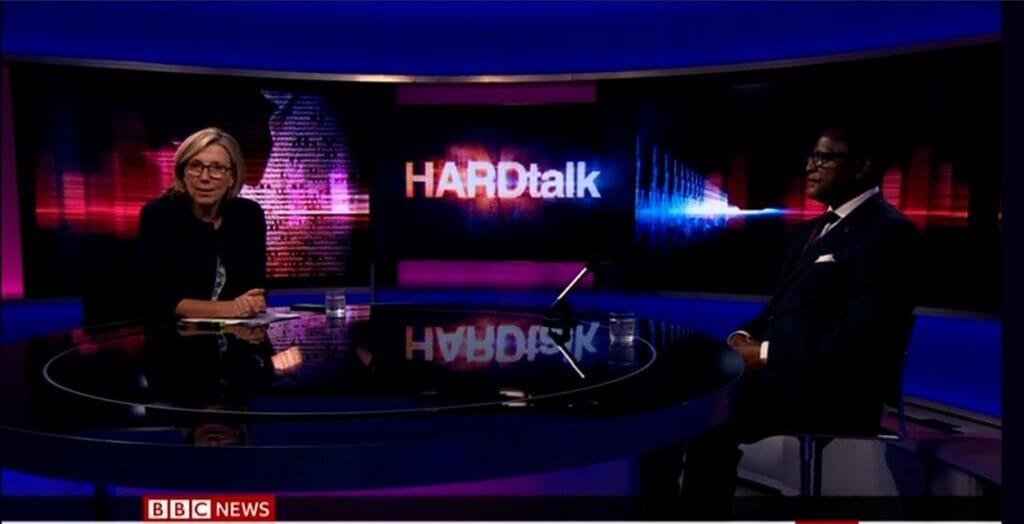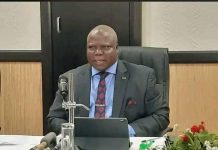Africa-Press – Malawi. “If someone says it’s raining and another person says it’s dry, it’s not your job to quote them both. Your job is to look out the f***ing window and find out which is true.” – attributed to Jonathan Foster, a former Journalism professor at the University of Sheffield
To break my monopoly on setting the agenda for Talking Blues monologues and to mitigate the risk of boring you to death with monotony, I often reach out to the public to ask if there is an issue that needs this column’s attention or anything that can be done to improve the column.
I have been busy doing this these past few weeks, and I am grateful for the feedback many of you generously provided. I am now armed with insightful proposals and wisdom to inform this column. Some readers used the opportunity to propose urgent issues that require critical Talking Blues-que incisive interrogations.
A discourse was proposed on the 900,000 plus jobs miraculously created by President Chakwera’s administration to see which one requires nothing short of a microscope.
Another suggestion was a discussion on the rank hypocrisy demonstrated by the deployment of President Chakwera’s daughter as a diplomat to the UK despite President Chakwera:
• emphatically telling the world that: “Violet, mwana wa Lazaro” is going nowhere, and
• Labeling his predecessor and the Democratic Progressive Party (DPP) nepotists for prioritizing relatives’ job creation when he was angling for an opportunity to do precisely that.
Since this is not complicated, I will dispense with it right away. After getting embarrassed in the first BBC interview, it appears the president wanted the appointment canceled.
That’s why during his home return presser, he declared that “Violet, mwana wa Lazaro sakupita ku embassy.”
However, whosoever is the de facto appointing authority and happens to care less about what the supposed president says decided that there would be no retreat, no surrender, and Violet’s appointment was left intact. Hence, at the recent BBC ‘cross-examination’, Chakwera had no choice but to confirm that he is a helpless captive; he is not running the show.
I will leave this at that.
Someone suggested that I unpack the State of the Nation Address (SONA). Tempting as this sounds, I am afraid that does not belong here. Talking Blues examines facts, not fiction.
What caught my eye, however, was a perceptive media watcher who suggested that the efforts of the Attorney General (AG), Director of Public Prosecutions (DPP), and Office of President and Cabinet (OPC) in the Zuneth Sattar scandal do not seem, in his view, to be ‘adding up.’
He also had a not-so-kind word about the media’s passivity. In his view, the Malawi media seems to have conspired with the AG, DPP, and OPC to frustrate justice despite presidential rhetoric to the contrary.
“Reporting on progress in Sattar-related investigations is being deliberately avoided in the mainstream media,” he said. I don’t work in government and, hence will not go there.
However, I can ably interrogate how the media is accidentally or deliberately giving the impression that it is not doing enough on Sattar-gate reporting.
First, let me commend that astute reader/ watcher because, like Malcolm X cautioned, “If you aren’t careful, the newspapers will have you hating the people who are being oppressed and loving the people who are doing the oppressing.”
I cannot disagree that the Zuneth Sattar saga – despite reportedly costing us trillions – is not getting the coverage it deserves for some unfathomable reason. It is as if unseen cash, oops, I mean hand, is diverting mainstream media practitioners’ attention from this make-or-break-once-in-a-lifetime opportunity to crack corruption in Malawi to mundane news stories.
In fact, even I have noted a few disturbing trends in news and commentaries vis-à-vis Sattar and his associates’ escapades.
I have observed that discourse on the fight against corruption is often subtly favouring those making the work of Madam Martha Chizuma and the Anti-corruption Bureau (ACB) difficult.
When some official throws a spanner in an arrest or an impending one, there is no shortage of analysts spinning in praise of the spanner-thrower and how his spanner-throwing act is justified blah blah blah and indeed why the spanner-wielder’s office is better placed to “know these things” than the ACB.
I have sat through more than one T.V. program where, watching/listening, one would think Ms. Chizuma is just a handcuff-happy rookie who knows nothing about the law.
Watching some commentators going at it, it’s as if in dire need of protection are the corrupt low-lives and not our hard-paid taxes. I find this problematic because, in general, our work as journalists in situations with contrary stances or views is not to take only one side’s story and amplify it, no.
As per Professor Jonathan Foster: if someone says it’s raining and another person says it’s dry, our job is NOT to quote them both. We should look out the window, or better still, go outside to find out which is true.
Concerning the discord between the besieged ACB on the one hand versus the combined might of the AG, ACB, and OPC., all I see in the media are poorly disguised attempts to justify why Sattar and his associates must be allowed to loot again.
Some might ask, “Mapwiya Muulupale, what should we be reporting when there is no progress?” This is precisely the astute reader’s and my point. Our duty is to find out why there is no progress, and there are several tools that can assist us.
The first tool to decipher the hypothesis that ‘someone wants to kill Sattar-related investigations’ is the triangle of mean, motive, and opportunity where,
• means: the ability of government officials to block investigations and arrests,
• motive: the reasons officials could have to frustrate the ACB, and
• opportunity: whether officials have the chance, resources, backing, and mandate to frustrate the ACB.
A diligent journalist following this line of inquiry would unearth why it is in some people’s interests to hinder Sattar-related investigations and arrests. The second strategy is even easier: follow the money. The third is obvious: follow the blood. That is: which alleged suspect is related to who?
And bingo, one would strike gold and inform the public why no progress is happening on anything connected to Sattar and who the actors behind the lack of progress are. Q.E.D.
Vilifying or finding fault with the ACB, in which the public has more trust than in us media practitioners, is why I am less than impressed with how we have been and continue to under-report and under-investigate Sattar-gate.
Erosion of public trust is something we should be wary of because, in the final analysis, it will hit us where it hurts the most: our pockets! As per Malcolm X, we – the media – are the most powerful entity on earth. Because we control the minds of the masses, we can make the innocent guilty and the guilty innocent.
Speaking to the Latin title above, we must be ever diligent. More crucially, like Caesar’s wife, not only must we be free from suspicion, we must also avoid accusations, justified or not, at all costs.
For More News And Analysis About Malawi Follow Africa-Press






